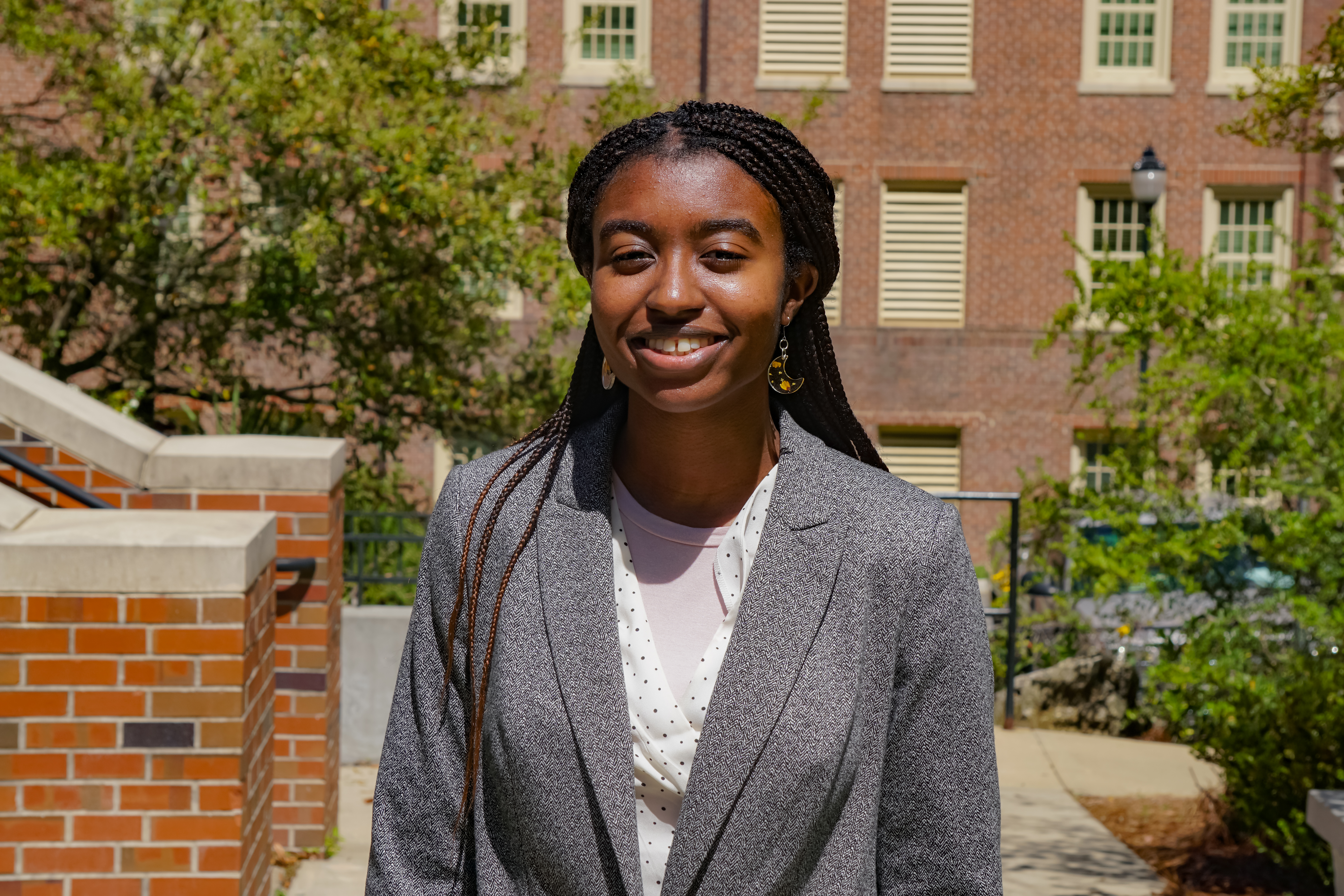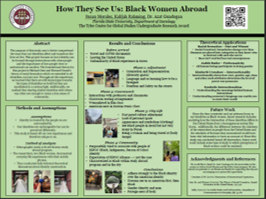President's Showcase
Kalijah Rahming She/Her/Hers
Supervising Professor: Dr. Azat Gundogan
Kalijah Rahming is a senior studying Sociology and Humanities at Florida State University. She has been involved with Her Campus FSU since her freshman year and now serves as their Head Personal Editor. Kalijah also works as a Mock Interview Mentor at FSU’s Career Center, where she aids students in preparing for their future careers. In her free time, she enjoys perusing Pinterest and engaging in friendly banter about various reality television shows. Following graduation, Kalijah plans on attending graduate school, where she will pursue a career in either Sociology or Communication.
Abstract
The purpose of this study was to better comprehend the ways that our identities affect and transform the lives we live. This project focuses on how identity can be formed through interactions with other people and the importance of how people view or understand one another. The foundational theory for this project is Michael Omi and Howard Onant’s theory of racial formation, which we extended to all identities, not just race. The researchers augmented their understanding of this topic through an NPR video series that interviewed expatriate Black Americans living in Asia and how their identities were perceived in their new home compared to the United States. The method of analysis for this project is an ethnographic study which took place at a South Korean summer study abroad program. The researchers, two Black women with other layers of identity, spent time in homogeneous South Korea and analyzed the way their identities were constructed by those around them. To conduct this research, the two documented everyday life experiences through their mobile phones and held informal theoretical discussions about how their identities were being constructed by others. The researchers recognize that these experiences are their own and may not be applicable to society as a whole. Throughout this experience, they learned that there are still stereotypes towards the types of identities they hold but they are manifested in a curious light. Additionally, the researchers realized that sharing similar identities with others was often not enough to create a true sense of community.




